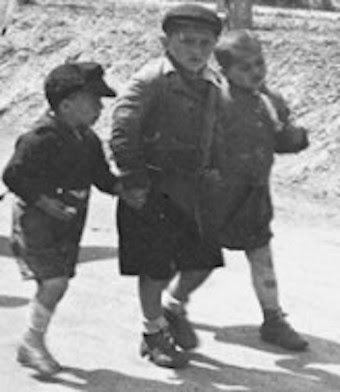“Brexit or no Brexit?” he asked, having spotted our British number plates.
“No Brexit, no Brexit,” we chorused.
“OK, passez,” he assured us.
We’ve just spent a few packed days in the town where we used to live. That’s Kehl, in Germany, which has been a district of the great German city of Straßburg, or a market town opposite the great French city of Strasbourg, depending not so much on the geography but on the history of the region.
One place we visited was Basel, where there’s a celebration going on in honour of the sixth centennial of the publication the translation of the New Testament by Erasmus of Rotterdam, who lived the latter part of his life in the Swiss city. Among the many quotes from the great scholar, I particularly liked one in which he says that he wants to be a citizen of the world, at home anywhere or, better still, nowhere.
 |
| One of the Erasmus quotations scattered around Basel |
We visited cousins in Basel, and were struck by the storks’ nest on the chimneys of the house opposite.
“The council sent people up to destroy the nest as soon as it was made, but the storks rebuilt it within three days. By the time the authorities sent back people, there were already eggs and it was too late.”
This reminded me of a story we were told in San Francisco’s Chinatown years ago.
When the Chinese community first arrived it was granted some fairly lousy, worthless land outside the city limits. But then San Francisco grew and had to spread all around, forcing the price and desirability of the Chinese area up.
In 1906 came the devastating earthquake and fire. Chinatown was destroyed. The whites of San Francisco saw a way of making something positive of the disaster. They summoned a meeting of the council to take back control of the Chinese district.
Alas, it took two weeks for the council to meet. And in that time the Chinese had completely rebuilt their homes and businesses and it was too late to drive them out.
Hence today’s Chinatown.
Just like the pair of storks we saw in Basel.
We also visited a village in deepest Alsace, in the wine country.
That’s Alsace, the great province of eastern France, not Elsaß, which was more than once a flourishing province of western Germany.
In between some of the vines, we found cherry trees rich in fruit, ridiculously late, because of the lousy weather this year. We weren’t complaining though, as we picked and ate handfuls of different varieties of glorious cherries at every tree we reached.
 |
| Joy on a country walk |
Royal decree? In 1897? When France was firmly republican? Well, Alsace was Elsaß then and anything but firmly French. Colmar was a provincial city of the German Empire.
The village has a massive Protestant church and an only slightly less massive Catholic one. It also boasts are well-restored synagogue, though no real Jewish community any more. Still, the building’s impressive.
At the end of the nineteenth century, the Jews of the village were pretty poor (few of any community were particularly wealthy). So many of the boys and young men would set out for the ‘fifth voyage.’ Their parents would find them enough money to get to the French coast somewhere, where they’d take menial service in one of the great transatlantic liners. Five crossings would allow them to pay for their passage, and at the end of the fifth they would leave the ship in the States and set out to make their fortunes.
Many did, and sent back funds to support their families and also endow their home village with a good synagogue. Which stands there to this day, near the Protestant and Catholic churches, as a mute monument to a fine state of affairs when three great faiths were able to live side by side without tearing each other apart.
Erasmus I suspect would have approved. As do I. It was an arrangement that should attract a smile as fulsome as the French policeman gave us, after he’d finished ribbing us about the Brexit vote.
That was a good experience. Brexit hasn’t given me much else to smile about.














